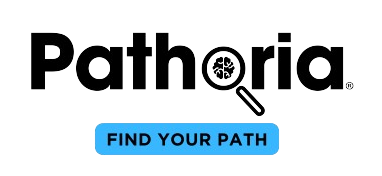In the dynamic landscape of today’s workforce, an effective early careers strategy is not just a necessity; it’s a key differentiator for organizations striving for excellence. A gold-tier early careers strategy goes beyond traditional approaches, focusing on innovation, inclusivity, and long-term talent development. Here’s a comprehensive guide to creating a gold-tier early careers strategy:
Crafting a Gold-Tier Early Careers Strategy: Unlocking Talent and Fostering Growth
In the dynamic landscape of today’s workforce, an effective early careers strategy is not just a necessity; it’s a key differentiator for organizations striving for excellence. A gold-tier early careers strategy goes beyond traditional approaches, focusing on innovation, inclusivity, and long-term talent development. Here’s a comprehensive guide to creating a gold-tier early careers strategy:
1. Holistic Talent Acquisition:
- Diverse Outreach: Cast a wide net to attract talent from various backgrounds and experiences. Leverage diverse recruitment channels, including partnerships with educational institutions, industry forums, and digital platforms.
- Inclusive Hiring Practices: Implement inclusive hiring practices that promote diversity and equal opportunities. Consider blind recruitment processes to eliminate unconscious biases and foster a fair selection process.
2. Comprehensive Onboarding:
- Structured Onboarding Programs: Develop well-structured onboarding programs that provide new hires with a deep understanding of the company culture, values, and their role within the organization.
- Mentorship Initiatives: Pair new hires with experienced mentors to facilitate a smooth transition into the organization. Mentorship not only aids professional development but also fosters a sense of belonging.
3. Continuous Learning and Development:
- Personalized Learning Paths: Tailor learning paths based on individual strengths, aspirations, and career goals. Provide access to a variety of learning resources, workshops, and mentor-led sessions to foster continuous growth.
- Skill-Building Initiatives: Invest in programs that focus on developing both technical and soft skills. Offer opportunities for upskilling and reskilling to ensure employees stay relevant in a rapidly evolving business landscape.
4. Performance Management:
- Regular Feedback: Implement a feedback culture where continuous communication between managers and early career employees is encouraged. Regular performance reviews should focus on strengths, areas for improvement, and career progression.
- Goal Alignment: Align individual goals with organizational objectives. This not only provides clarity but also instills a sense of purpose among early career professionals.
5. Employee Well-being and Support:
- Mental Health Initiatives: Prioritize mental health and well-being by offering resources, counseling services, and promoting a healthy work-life balance.
- Inclusive Support Systems: Establish support systems that cater to the unique needs of early career professionals. This may include mentorship circles, affinity groups, or buddy systems.
6. Career Pathing and Advancement:
- Clear Career Paths: Provide transparent career progression frameworks that outline the various stages of advancement within the organization. This clarity encourages goal-setting and ambition.
- Opportunities for Advancement: Create opportunities for internal promotions and advancements. Encourage a culture that values internal talent and recognizes achievements.
7. Cultivating a Positive Culture:
- Inclusive Work Environment: Foster a workplace culture that celebrates diversity and inclusion. Ensure that all employees, regardless of their career stage, feel valued and respected.
- Recognition Programs: Implement recognition programs to acknowledge the contributions of early career professionals. Regularly celebrate achievements to boost morale and motivation.
8. Technological Integration:
- Tech-Enabled Learning Platforms: Embrace technology to facilitate learning and development. Utilize e-learning platforms, virtual simulations, and other innovative tools to enhance the learning experience.
- Data-Driven Decision-Making: Leverage data analytics to assess the effectiveness of the early careers strategy. Use insights to make informed decisions and continuously refine the program.
9. Sustainability and Social Responsibility:
- Corporate Social Responsibility Initiatives: Integrate social responsibility into your early careers strategy. Engage early career professionals in sustainability projects and community outreach programs.
- Ethical Leadership Development: Emphasize the importance of ethical leadership and responsible business practices. Instill a sense of corporate social responsibility among early career talent.
10. Continuous Evaluation and Adaptation:
- Feedback Loops: Establish feedback loops with early career professionals to gather insights on the effectiveness of the strategy. Regularly solicit feedback and make iterative improvements.
- Industry Benchmarking: Stay abreast of industry trends and benchmark your early careers strategy against best practices. Adapt the strategy to align with emerging trends and the evolving needs of the workforce.
By integrating these elements into your early careers strategy, you can elevate it to gold-tier status, creating a framework that not only attracts top talent but also nurtures and retains them for long-term success. Remember, the key is to remain agile, responsive, and committed to the ongoing development of your early career



